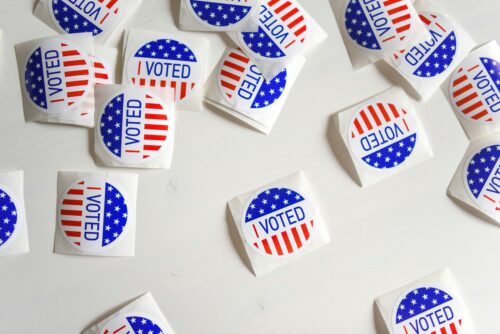
Podcast
Preparing for the Election Meltdown … or Not
Co-hosts Archon Fung and Stephen Richer weigh conflicting predictions for the 2026 midterms and explore how to safeguard a free and fair election.
Case Study
While many people are aware of the restrictions formerly incarcerated individuals face in voting, few know about the challenges faced by another group of incarcerated citizens: people in pretrial detention and those incarcerated for misdemeanors. Despite having the right to vote, incarcerated persons often confront challenges in registering and/or voting while being held. In the last few years, organizers, election administrators, and corrections staff in a handful of jurisdictions have taken an innovative approach to address this problem, making the jail an early vote center and setting up a polling place right in the facility.
The District of Columbia is one of the first jurisdictions to do this, and their success with the program can inform the efforts of policymakers, election administrators, jail staff, and organizers to put similar programs in place and successfully implement them in other jurisdictions. This case study tells the story of Washington, D.C., through the eyes of those who have been directly involved. It presents the evolution of jail voting in the district, what it took to get it to happen, the logistics of its successful implementation, the challenges it has presented, and how different stakeholders in the process have made it work. It demonstrates that providing incarcerated people with a true opportu- nity to vote is not overly burdensome and is something they will enthusiastically participate in. Furthermore, it suggests that the voting experience may have positive impacts on the voters that could carry over into future elections.
Podcast
Co-hosts Archon Fung and Stephen Richer weigh conflicting predictions for the 2026 midterms and explore how to safeguard a free and fair election.
Podcast
White House reporter Annie Linskey offers a closer look at how the Trump White House makes decisions and what recent actions reveal about its strategy.
Podcast
Jonathan Rauch joins the podcast to discuss why he now believes “fascism” accurately describes Trump’s governing style.
Commentary
Allen Lab Policy Fellow Christine Slaughter makes the case that democracy must be understood through people’s lived experiences and agency, not just institutions.
Podcast
Co-hosts Archon Fung and Stephen Richer weigh conflicting predictions for the 2026 midterms and explore how to safeguard a free and fair election.
Feature
Economists and policy analysts broadly agree that more housing needs to be built in order to reduce costs in America’s most expensive cities. Using a novel survey of mayors of mid-sized and large cities to explore mayors’ views on the roots of America’s housing crisis and what solutions they believe will most effectively address their constituents’ housing challenges, the authors summarize mayors’ attitudes and perceptions on key issues related to expanding the housing supply, reporting how well these views correlate with mayors’ assessments of their own cities’ supply needs.



